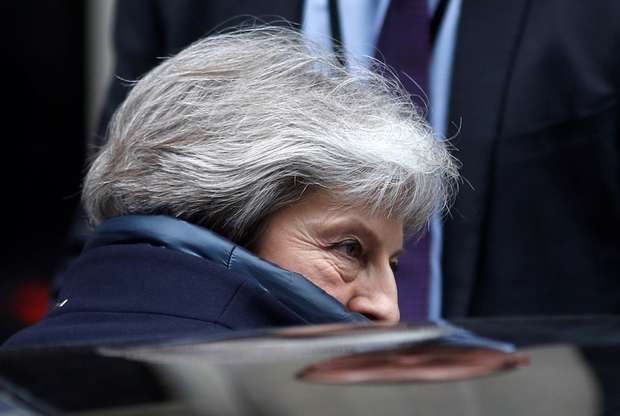The UK government has revealed a secret oversight mechanism for security services engaged in possible criminal activity, acknowledging that British intelligence agents may be involved in illegal acts as part of their job.
Downing Street had resisted a push to release the directive, but it finally published it on Thursday after a seven-month legal challenge by rights groups.
Known as the “Third Direction” in intelligence circles, the order instructs the Investigatory Powers Commissioner - the security services’ watchdog - to oversee the participation of MI5 agents involved in criminal activities within the UK.
The order was first issued in 2014 and consists of just three sentences, bearing the signature of then-prime minister David Cameron.
It was renewed again in 2017 and this time signed off on by May.
It says: "The Investigatory Powers Commissioner shall keep under review the application of the Security Service guidelines on the use of agents who participate in criminality and the authorisations issued in accordance with them."
'Covert Human Intelligence Sources'
The directive covers the activity of MI5 agents - known officially as Covert Human Intelligence Sources (CHIS) - who can provide intelligence that can assist in the work of the Security Service.
A section of a report published by the intelligence watchdog Sir Mark Waller in 2016 sets out "agent participation in the commission of an offence".
It said: “There may be occasions where a CHIS participates in a criminal offence in order to gather the required intelligence, for example membership of a proscribed organisation or handling stolen goods.
“However in specific situations where the intelligence dividend justifies it, a good argument can be made that it is in the public interest and for the greater good to become involved.
“Although such activity cannot be made lawful I have recommended that the agency must justify the public interest test.”
The Security Service, known as MI5, describes its agents as “one of the most significant information gathering assets we have”.
The existence of the directive was acknowledged by the government in 2016 as part of a case brought by Reprieve and Privacy International at the Investigatory Powers Tribunal, an independent court that considers charges of unlawful conduct by public entities. But its contents have only now come to light.
On Thursday, Prime Minister Theresa May published the formerly secret directive after a seven-month legal battle mounted by Reprieve and Privacy International. Its release represents a setback for the government, which had argued at the Investigatory Powers Tribunal that its publication may undermine national security.
Still, Reprieve and Privacy International are continuing to press the government to publish further details on when and in what circumstances spies are permitted to break the law.
“Authorised criminality is the most intrusive power a state can wield,” Maya Foa, Reprieve director said in a statement. “The public and Parliament are still being denied the guidance that says when British spies can commit criminal offences and how far they can go.
“Theresa May must publish this guidance without delay.”
Millie Graham Wood, a solicitor at Privacy International, said there was “no justification” as to why the secret memo was not published earlier.
“Had we not sought to challenge the government over the failure to publish this direction, together with Reprieve, it is questionable whether it would have ever been brought to light,” Graham said in a statement.
“Yet again the government proves it is incapable of even basic transparency, particularly when it concerns controversial functions of the intelligence agencies. It is wrong in principle for there to be entire areas of intelligence oversight and potentially of intelligence activity, about which the public knows nothing at all."
Read the original article on middleeasteye.net.
More about: UK
















































